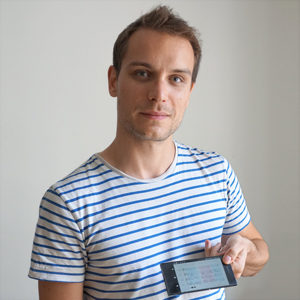Putting composers back in the loop
Applying the latest deep learning techniques to music composition is appealing for AI researchers; but for composers, this intrusion of machines in their domain of expertise could be perceived as a threat. This fear of being replaced is legitimate: indeed, many recent generative models for music tend to produce infinite numbers of scores without the need for human intervention. I think that this behavior is not desirable and that AI algorithms should instead be used by artists as assistants during the compositional process. By creating a fruitful discussion between a composer and the machine, the artist can then focus on the development of their musical ideas and let the AI do the technical parts. Professional composers can benefit from these tools to become more productive and explore uncharted regions of musical creation while amateur musicians can use these innovative tools to express themselves in an intuitive way. By putting composers back in the loop, we will go from automatic music composition to AI-augmented composition and redefine the way people compose music.


